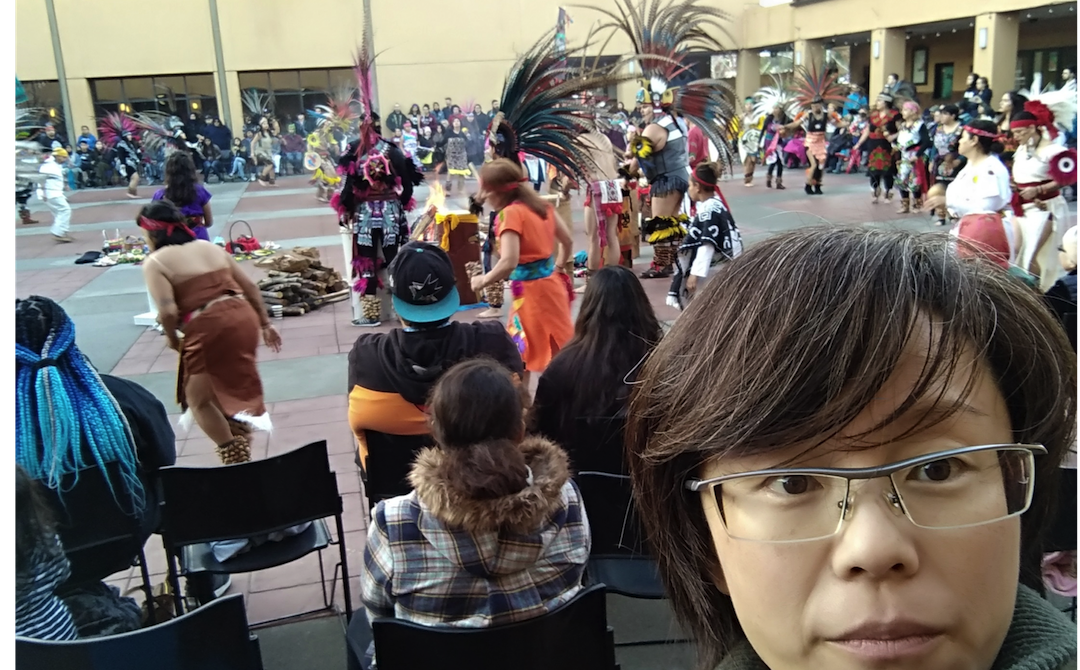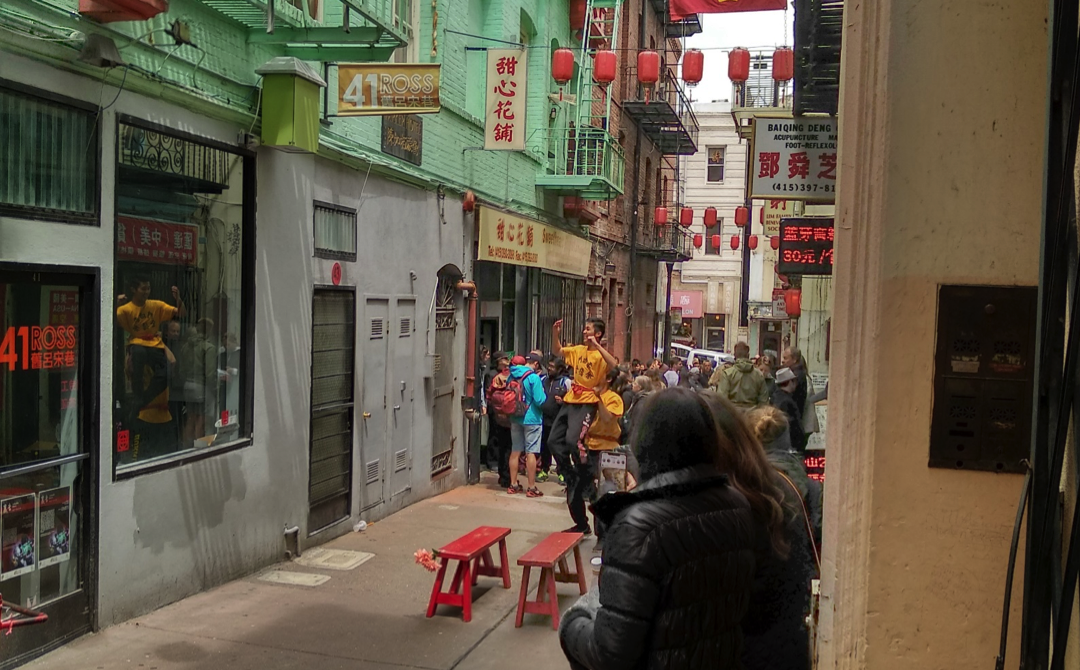Welcome!
Consider taking an Ethnic Studies class ... I'm excited to meet you and be a part of your college experience!
Classes I Teach
Spring 2026
| CRN | Course | Sec. | Title |
|---|---|---|---|
| 49508 | ASAM 11 | 40 | Asian Americans and Racism |
| 49509 | ASAM 11 | 41 | Asian Americans and Racism |
| 48589 | ASAM 13 | 60Z | Asian Americans and Asia |
Winter 2026
| CRN | Course | Sec. | Title |
|---|---|---|---|
| 36813 | ASAM 10 | 40D | Contemporary Asian American Communities |
| 39826 | ASAM 10 | 41 | Contemporary Asian American Communities |
| 39623 | ASAM 11 | 40 | Asian Americans and Racism |
| 39624 | ASAM 11 | 41 | Asian Americans and Racism |
| 38417 | ASAM 13 | 60Z | Asian Americans and Asia |
Courses I've Taught
CETH 10: Race, Ethnicity, and Inequality (formerly ICS 4)
Syllabus Course Description
Key Questions
Do race and ethnicity matter in your life? Do they matter as social identities in 21st century America? What’s the history of race in the U.S? How big is the problem of racism in today’s society? How are we as a society trying to address racial inequality and racial subordination? And, how might we conceive of and practice anti-racism?
This course is an introductory study of race and ethnicity, with a focus on racial inequality and racism. We will analyze race and ethnicity as categories of social identity that have fundamentally organized U.S. society through the uneven distribution of property, power, and prestige. We will examine how racism operates in society today, and what allows for its persistence over time. From there, we will explore conceptualizations and practices of anti-racism.
The course is organized along three broad areas of questions:
Part I: How do race and ethnicity matter in the U.S. as categories of social identity and in measures of well-being?
- How have race and ethnicity mattered to me—in education, health, and economic well-being?
- What do we mean by race and ethnicity?
- How do race and ethnicity correlate with inequality in the U.S. today?
Part II: How do we theorize American racism and explain its persistent manifestations across place and time?
- What’s the history of racial inequality in the U.S.?
- How do we explain the dynamics of racial domination and subordination among various groups?
- How does history shape our current conditions of racialized inequality today?
Part III: What does it mean to practice anti-racism?
- What are key debates about racism today?
- What do those contentions mean for formulating anti-racism?
- What does “new racism” require of “anti-racism" to be efficacious?
CETH 11: Race and Ethnicity: Belonging and Exclusion in the U.S. (formerly ICS 9)
I do not currently teach this class.
ASAM 1: Asian American Experiences Past to Present (formerly ICS 20)
Syllabus Course Description
Key Questions
- What are the historical experiences of Asians in the U.S.? And why should we care about them?
- Does an understanding of those experiences bear upon how we might make sense of the experiences of Asian Americans today, especially with anti-Asian scapegoating and acts of aggression amid the coronavirus pandemic?
Main Point of View
The course will explore these questions by introducing you to the field of Asian American Studies. The premise of the course is that the experiences of Asian Americans today cannot be understood insightfully without an awareness and analysis of the historical experiences of Asians and Asian Americans in the United States. The course will suggest that by examining the historical experiences of Asians in the U.S. with attention to race, ethnicity, gender, class, and nation, we can tease out important implications for considering the experiences of Asian Americans in the U.S. today.
Course Themes and Topics
The course will focus on Asian immigrant experiences from the mid-1800s up through post-1965 migration of Asian immigrants and refugees to the U.S. We will explore several thematic topics: immigration and its international and national contexts, labor and laws, community building and its dilemmas, hostility and resistance to oppression, race and loyalty during times of war, becoming American and racial stratification, identity and panethnicity, and community empowerment and cultural representation. Our attention will focus on the experiences of people of Asian ancestry in the United States – Chinese, Japanese, Korean, Asian Indian, Filipino, Vietnamese, Cambodian, Hmong, and Laotian. The course material draws from a number of disciplines, including ethnic studies, history, sociology, anthropology, feminist studies, literature, and film.
ASAM 10: Contemporary Asian American Communities (formerly ICS 22)
Syllabus Course Description
- How are societal reactions to the ongoing coronavirus pandemic affecting Asian Americans?
- What other kinds of racial bias do Asian Americans face? And what about racial discrimination?
- What’s your take on the controversy over Asian American accusations of racial bias at Harvard?
- Did anyone notice the latest Pew Research Center’s report announcing, “Income Inequality in the U.S. is Rising Most Rapidly among Asians” (compared to ALL other racial/ethnic groups)?
- Are Asian Americans well represented in politics, especially in Silicon Valley, and should they be?
- What does it mean to call Asian Americans the “model minority”? Should we call them that?
- Who does the term “Asian American” refer to anyway?
- And, who counts as an “Asian American community”?
These initial questions will lead us to a broader inquiry into contemporary Asian American communities. Our class will critically examine not only “social problems” faced by various Asian American communities, but also how social problems get identified and how those processes contribute to forging what are recognized as Asian American communities. So, the thematic questions of the class are:
- What kinds of concerns animate Asian Americans?
- How do these concerns become identified as issues deserving the collective attention of Asian Americans?
- And how do Asian American communities engage with these issues?
By asking and answering these questions in different contexts, this class makes the argument that Asian America is always in the making. Who we know to be Asian American and what we know to be Asian America are ever-changing. Asian American communities are being formed and re-formed continually. They are the social artifacts of creative impulses, collective imaginations, political economic conditions, historical circumstances, and tactical struggle.
This class is an introduction to the multidisciplinary character of Asian American Studies, focusing on historical and socio-cultural perspectives. We consider concepts and social theories of racial formation, gender, identity, capitalism, representation, nation, diaspora, and power to explore the dynamic nature of Asian American communities and racial relationality in the U.S. We explore the domains of history, citizenship, immigration, family, labor and work lives, education, media, politics, and community empowerment and activism.
ASAM 11: Asian Americans and Racism
Syllabus Course Description
Key Questions
- Do Asian Americans experience racism? What are the patterns of racialization faced by Asian Americans, at different moments in time and in different places?
- Do Asian Americans experience systemic racial subordination in the same way as other racialized minority groups? How might even the racisms faced by different racialized groups be inter-linked?
- How are we to make sense of the racialized positioning of Asian Americans, particularly in the context of anti-Blackness and white exclusivity and privilege?
- And, what might be effective responses to the complexity of racialization faced by Asian Americans?
These core questions push us to think about racism in four specific ways. First, we will consider its systemic nature. Second, we will examine how racism changes and is historically (time) and geographically (space) specific. Third, we will consider how racism experienced by Asian Americans is intertwined with the racialization of other groups and possibly their racial subordination or privilege. In these cases, racisms are linked, but not the same. And fourth, we will explore how racism informs the possibilities for anti-racism. To do this, we will explore the key analytics of: race, racial subjectivity, racial ideologies, racial subordination, racial formation, racial projects, racial triangulation, comparative racialization, intesectionality, and anti-racism.
The premise of this class is that racism--as a social phenomenon—changes in form and persists over time, contributing to its systematic nature. To chip at it, to dismantle it, our thinking and our efforts have to be sophisticated to match the complexity of racial subordination’s many manifestations.
The course is organized in three parts:
Part 1: theorizing racism: how do we formulate an explanation of race and racism?
Part 2: comparative racialization: how do we understand the relational nature of race and racialization?
Part 3: practicing anti-racism: how do we imagine tactics and strategies to challenge problematic racialization?
Key course themes include: labor and global capitalism, Orientalism and imperialism, immigration and exclusion, gender and the state, citizenship and nation, "good"/"bad" minorities and assimilationist thinking.
ICS 4 + ASAM 10: APALI Youth Leadership Academy & College Internship Program
Programs I've Worked With
- Asian American and Asian Studies Department
- Asian Pacific American Leadership Institute
- California History Center
- Latinx Empowerment at De Anza (LEAD)
- Learning Communities
- IMPACT AAPI - De Anza College was one of six awardees (2008-2011) across the country in the inaugural AANAPISI grant program created by the U.S. Dept. of Education
- Study Abroad
My Take on Teaching Ethnic Studies
I teach Asian Americans studies and comparative studies of race and ethnicity (aka ethnic studies). I love teaching ethnic studies.
I believe we all have so much to share based on what we have experienced and observed in life. Yet, it's rare to find spaces where we can explore how we make sense of all that--especially when it comes to race, ethnicity, and power.
I see my classes as moments in which we can uncover our own stories and develop our own perspectives on what's going on. From there, we can know what our commitments are and work towards what we think is good and right for our communities.

8th Annual UnThanksgiving Sunrise Ceremony
Mexican Heritage Plaza
San Jose, 2018

Chinatown Alleyway Tour
San Francisco, 2019


